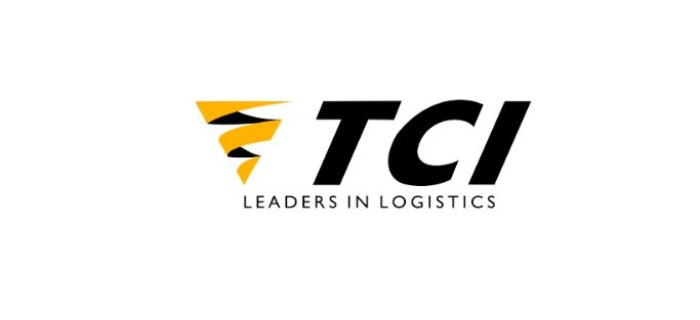
Energizing the Supply Chain: Best Practices in Battery Logistics for a Sustainable Future
21 Apr 2025
As the world's industries move towards greener energy solutions, batteries have emerged as a key component of this shift. From electric cars (EVs) to renewable energy storage systems, batteries are at the center of innovation across industries. With this increasing demand for batteries comes the imperative need for efficient logistics managementgetting batteries safely, securely and efficiently from point A to point B and vice versa. To the logistics companies, handling battery shipping is complicated given the diversity in battery types like lithium-ion, lead-acid, nickelmetal hydride (NiMH) and nickel-cadmium (NiCd). Each category has unique conditions and the shipping process should maintain safety route, observe environmental standards and make ontime deliveries.
Forward Logistics: Smooth and Secure Transportation of Batteries:
Battery logistics begin with the transport of new batteries from manufacturers to the end point, including electric vehicle manufacturers, energy storage organizations and electronics makers. The various types of batteries have distinct requirements in terms of temperature, handling and packaging to get them delivered in a safe way. Lithium-ion batteries, for example, are very sensitive to temperature and humidity. In the transportation of such batteries, controlled environments must be maintained to safeguard their safety and performance. Leadacid batteries and other similar batteries, although less sensitive, must also be handled with caution to avoid leakage or contamination.
Temperature-Controlled Warehousing Solutions
Some types of batteries, especially lithium-ion, must be transported and stored at particular temperatures in order to maintain their performance. A violation of these conditions may cause battery failure, decreased efficiency, or even safety hazards like fires or leaks. In order to meet this demand, most logistics providers have invested in temperature-controlled warehouse solutions. The facilities create the necessary conditions for battery storage so that the batteries stay in top condition until they are exported.
Reverse Logistics: Sustainable Battery Recycling and Disposal:
While the demand for batteries is increasing, so too is the requirement for efficient reverse logistics. At the end of their life cycle, batteries must either be recycled or disposed of in a responsible manner. If not, there can be damage to the environment and hazardous waste, so sustainable reverse logistics are ever more important. Reverse logistics is used for gathering old batteries, moving them to recycling plants and maximizing the recovery and reuse of useful materials like lithium, cobalt, and nickel. It is here that the logistics service providers can play an important role towards the environment through the adoption of the circular economy. Embracing circular economy mechanisms in battery logistics saves waste, ensuring valuable materials are reused while limiting the pollution factor.
The Benefits of Partnering with a Specialized Logistics Provider:
When choosing a transportation and recycling provider for batteries, one should choose a firm that has the needed expertise, resource base and sustainability commitment. The transportation company should be wellpositioned to manage the variations in battery type, safety protocol and ecofriendliness while maintaining deliveries on time. TCI stands as a specialist in delivering customdesigned solutions that meet the intricacies of battery logistics. With safety and compliance at the forefront, it provides secure handling of all batteries, conforming to regulatory and safety requirements across the board. To address the specific needs of sensitive battery types, like lithium-ion, it has a range of temperaturecontrolled logistics solutions. These solutions are created to support the optimal conditions of battery transportation and storage, thereby catering to both safety and efficiency. With extensive experience and advanced fleet management systems, it ensures effective and ontime delivery with real-time tracking to achieve hassle-free operations. Battery storage is another key feature of logistics, especially for delicate types like lithium-ion. It ensures through its specialized temperature-controlled warehouses that batteries meant for electric vehicles or industrial use are stored under perfect conditions, waiting to be shipped on time with no danger of damage. In the area of reverse logistics, it has a proactive mind set by providing green recycling and disposal options for recycled batteries. In collaboration with licensed recycling centres, the company provides assurance that reusable batteries are being processed in a responsible manner that reduces environmental pressure while maximizing reuse of critical material for the creation of new batteries. Further, TCI enables companies to meet Extended Producer Responsibility (EPR) norms by providing customized reverse logistics solutions. The solutions ensure the collection of batteries, recycling and reuse of batteries in an e c o - c o n s c i o u s and sustainable way. With its wide array of services, it has established itself as a go-to partner in battery logistics. Its robust regional network and adherence to green logistics principles make it the perfect choice for handling the entire battery life cycle—both forward and reverse logistics. From safe transportation of lithium-ion batteries to ecofriendly recycling solutions, it has the expertise and sustainability companies need
Partnering for the Future of Battery Logistics
With increasing global demand for batteries, there is also increasing significance for sustainable and efficient logistics. The future of battery logistics will be shaped by how efficiently we handle both the transportation and recycling of batteries. Businesses offering specialized services in this area have a critical role to play in ensuring the safety, sustainability and efficiency of the battery supply chain. Through a collaboration with a secure logistics partner such as TCI, businesses can trust that their battery logistics requirements—whether it's transportation, storage, or recycling—will be taken care of to the highest standard, security and sustainability. The real challenge however remains; the ability to determine end of life cycle value and ensure complete recycling of chemicals



leave your comment